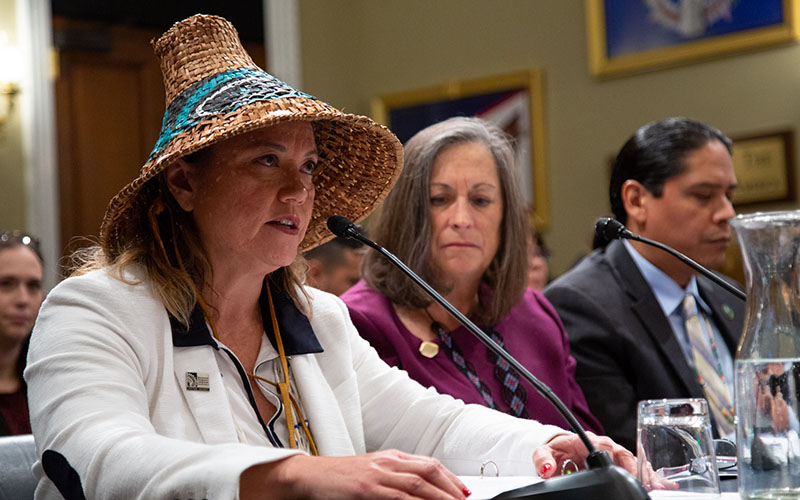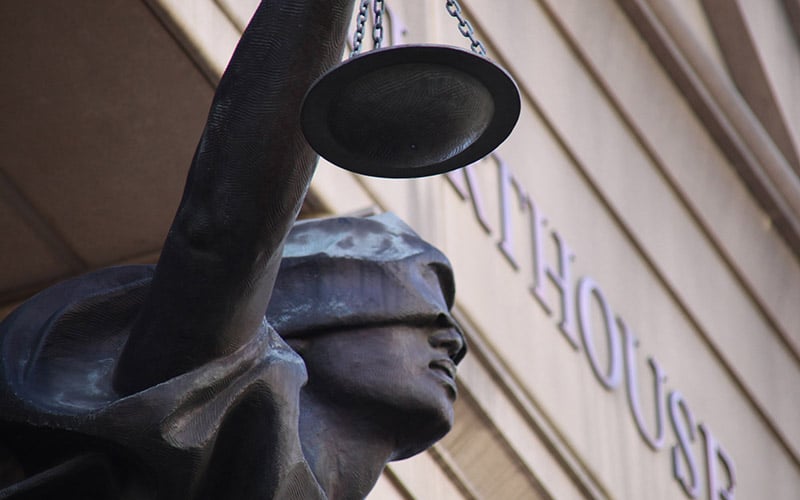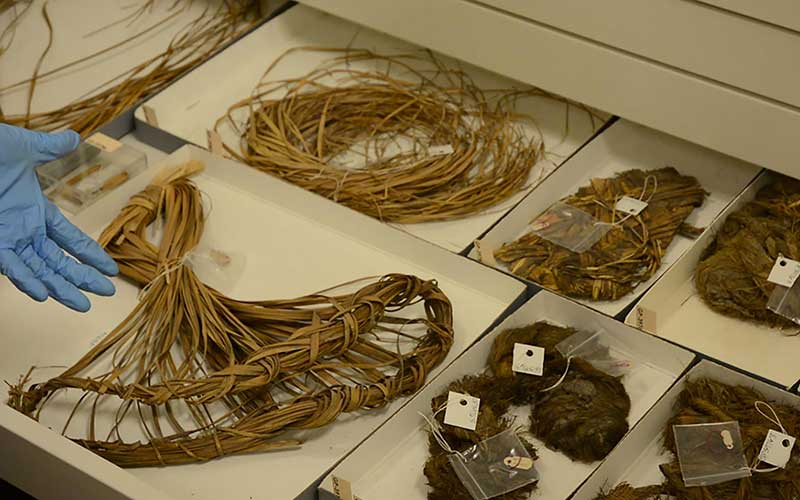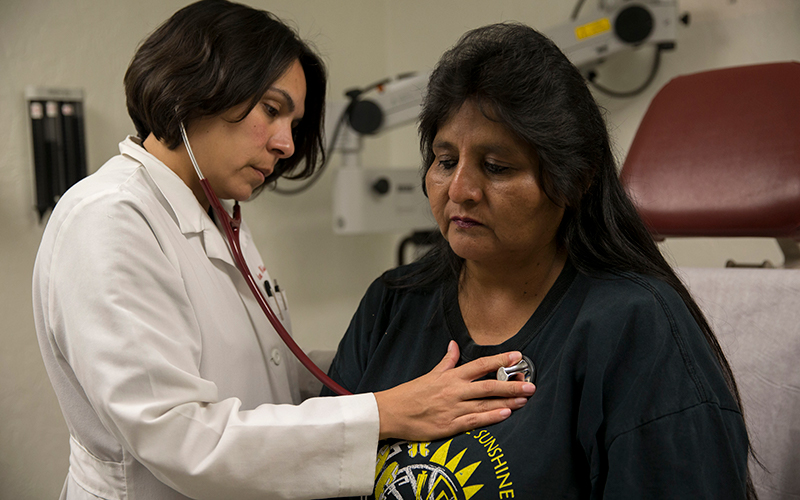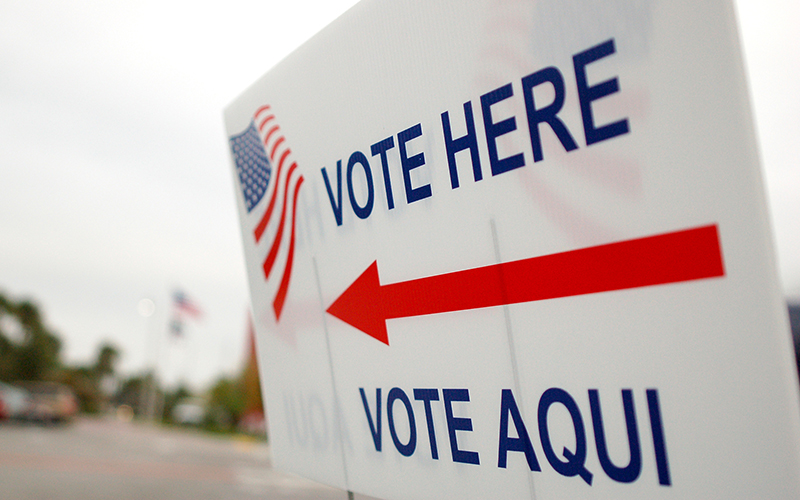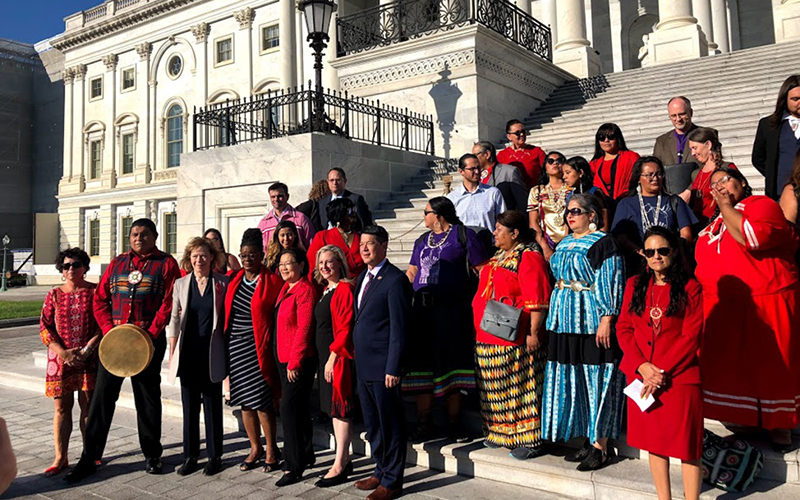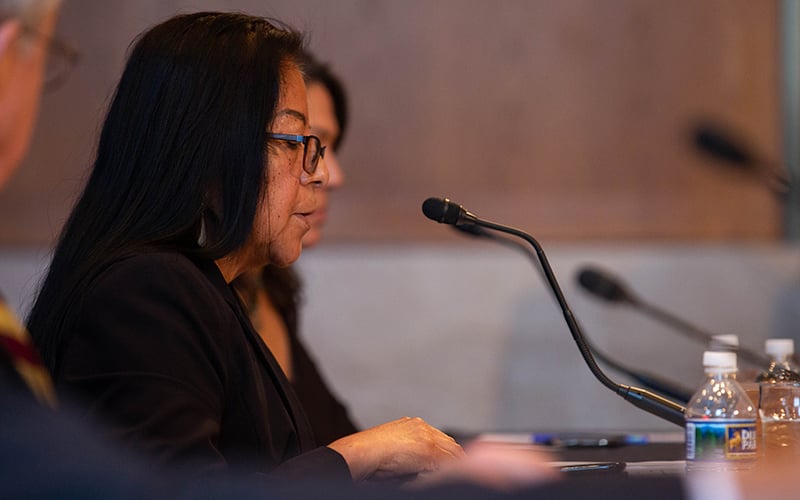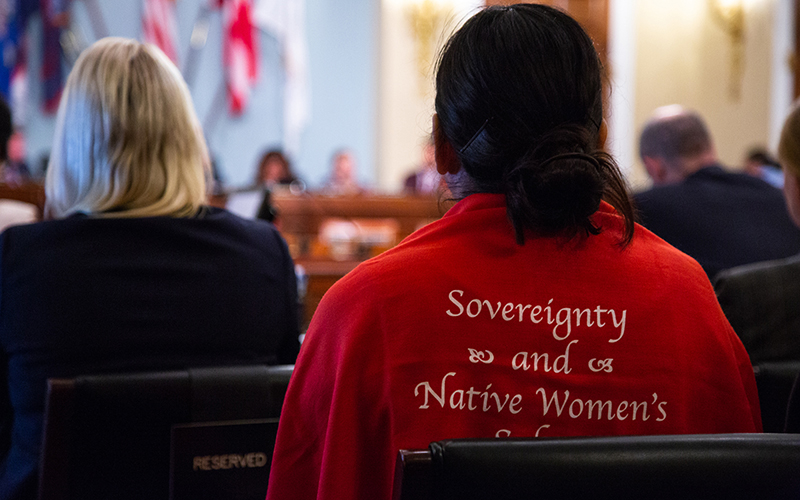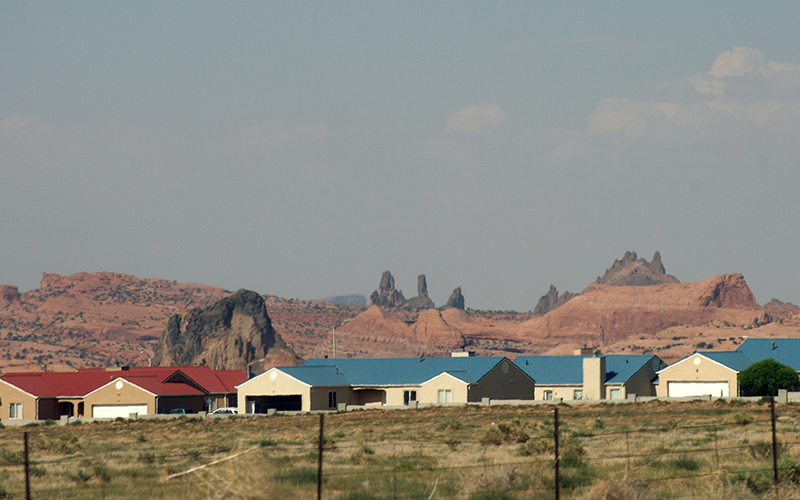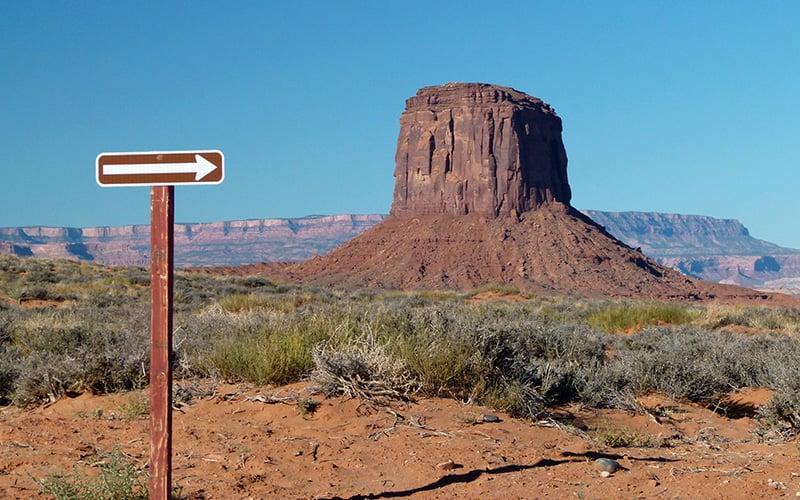‘Broken promises’ report details government’s history of failing tribes
WASHINGTON - A U.S. Civill Rights Commission report on how the federal government deals with Native American tribes details decades of underfunding, poor data collection and lack of coordination - and its authors say little has changed since their first report 15 years ago.
Navajo pull backing for tribal energy company over coal mine purchases
WASHINGTON - The Navajo Nation said Tuesday it is canceling indemnity agreements for the Navajo Transitional Energy Co., fearing the tribe's finances could be "placed in a state of uncertainty" by the company's recent purchase of three coal mines.
Court stays execution of Navajo man to hear claim of possible jury bias
WASHINGTON - A divided appeals court has stayed the scheduled December execution of Lezmond Mitchell, a Navajo double-murderer, saying it needs time to consider his claim that he was not allowed to question jurors for potential racial bias.
Navajo, Hopi will have objects, human remains repatriated by Finland
WASHINGTON - The Hopi and Navajo are among 26 tribes that will see the return of ancestral remains from Finland, where the items have been held in a museum after being taken from Colorado almost 130 years ago.
Tribal health insurance coverage rose, but still trailed U.S. average
WASHINGTON - The number of people who showed up at at Indian Health Service facilities with health insurance rose from 64% of patients in 2013 to 78% in 2018, according to a GAO report that said growth was highest in states, like Arizona, that expanded Medicaid under Obamacare.
Restrictive election laws, lack of polls hamper Native American voters, leaders say
PHOENIX – The voting rights of Native Americans in Arizona are routinely suppressed by a slew of requirements and practices, such as photo ID laws and a scarcity of polling places, Navajo and Gila River leaders said Tuesday at a congressional hearing in Phoenix.
Start of missing, murdered women panel moving ‘at speed of bureaucracy’
WASHINGTON - State officials agree on this much: "Not one red penny" of the $150,000 allocated for a task force on missing and murdered indigenous women that was created in May has been seen yet. But they disagree on who's to blame.
Tribal leaders, lawmakers chide FCC for lack of progress on broadband
WASHINGTON - Tribal representatives told a Senate committee Wednesday that the Federal Communications Commission is not doing enough to ease the regulatory burdens that keep Indian Country from getting wireless broadband access.
House panel questions officials on efforts to help Native women
WASHINGTON - Arizona lawmakers questioned administration officials Wednesday on what they are doing to deal with the problem of missing and murdered indigenous women - and they weren't always satisfied with the answers.
Navajo council votes to oppose possible HUD limits on home-loan program
WASHINGTON - The Navajo Nation Council voted unanimously Thursday to oppose a HUD draft plan that critics say could put income restrictions for the first time on applicants to the Indian Home Loan Guarantee Program, but which HUD says has been misinterpreted.
Deadlines loom for Navajo looking to take part in land buy-back program
WASHINGTON - Time is running out for Navajo landowners who want to take part in the second round of a $1.9 billion federal program to buy back scattered and isolated parcels of land on the Navajo Nation. Friday is the last dayNew Mexico residents to apply while those in Arizona and Utah have until Sept. 30.
Wells Fargo agreement called ‘tremendous victory’ for consumers, Navajo
WASHINGTON - Consumer advocates said that Wells Fargo's $6.5 million settlement of a Navajo Nation lawsuit that charged the bank with preying on tribal members is a "tremendous victory" for Native communities targeted by such practices.
